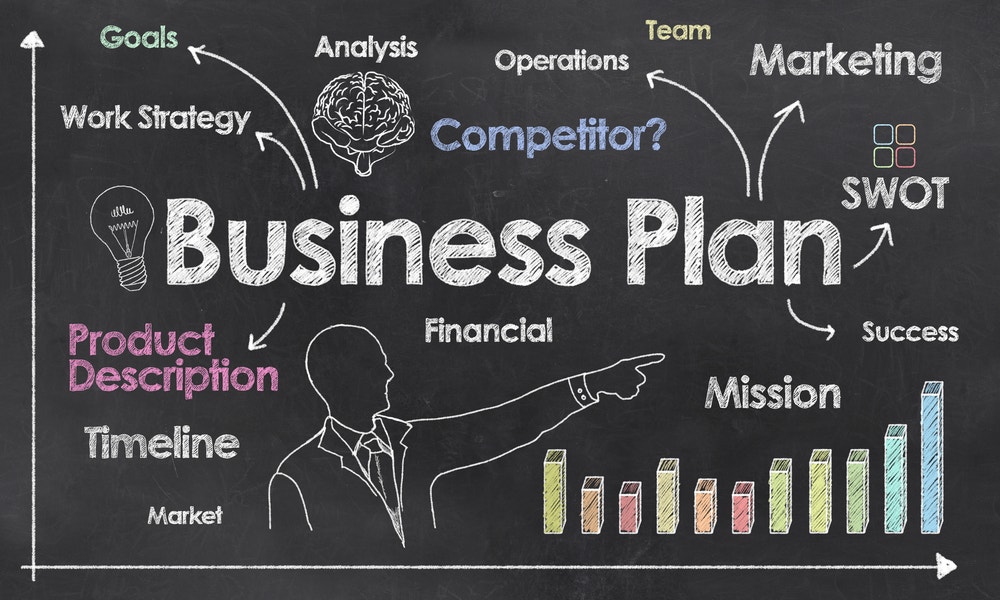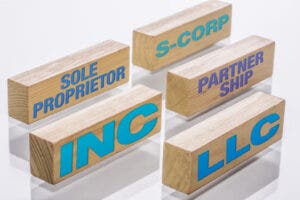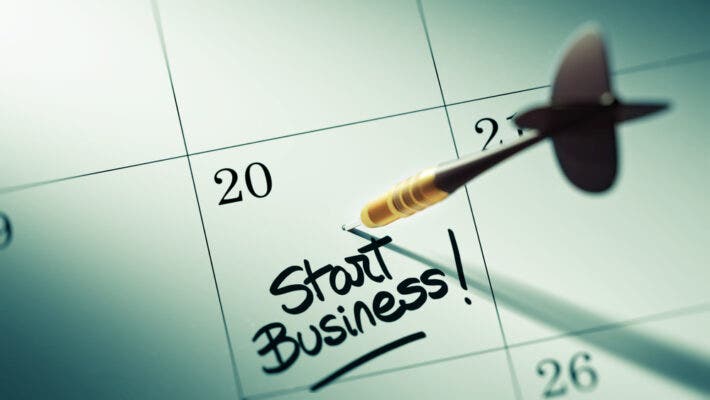Part II - Creating Your Party Rental Business from Scratch
It’s Time to Roll Those Sleeves Up!
In part one of our series on how to start an event and party rental business, we explained what sort of work goes into being a rental operator. And now, that work is going to begin. In part two of our series, we’re going to talk about everything you’ll need to do in order to create your new event and party rental business from scratch. And it’s going to involve quite a bit of planning.
Creating a new small business out of thin air isn’t easy. There are lots of financial and legal considerations, and all of those apply to your rental business. After all, you don’t want to be some dude renting equipment out of the back of a van, right? You want your business to be legitimate, and your customers definitely want that too.
You’ll need to develop a business plan, and decide how to structure your company’s ownership. You’ll want to think about business banking and credit. Knowing how to research competitors, and knowing what to do about insurance, and how to tackle marketing … a whole lot goes into starting a new business. But don’t worry, we’re going to walk you through quite a bit of that here, and point you toward some useful help along the way.
Good Times, Bad Times
At face value, it’s simple to explain how an event and party rental company turns a profit. You have party tents, bounce houses, inflatable water slides, folding tables and chairs, portable dance floors, and lots of other equipment. Consumers want to rent that gear. What’s so complicated about that?
First, we need to answer a few questions:
- How do customers find out your business exists?
- What are you offering to help them make an informed decision?
- How do you process their payments, and how should your rentals be priced?
- What happens before, during, and after their rental?
- And what happens if, God forbid, someone gets hurt using your equipment?
It’s important to consider all of these elements before we continue. They’re going to play an integral role in shaping your business plan, a critical document every small business absolutely must have before forming.
You need to put together marketing so customers can find your business. You need fair, competitive prices and package deals that make your company’s offerings appealing. Safe, secure methods of accepting payments? That’s also a must. And if something unfortunate and unforeseen happens, you need your business to absorb the brunt of the fallout, rather than you personally taking that hit.
All of that is why we need to take these next steps seriously. Creating a well structured and highly detailed business plan answers all of these questions and helps you plan ahead not just for the good times, but for those unfortunate bad times as well. And should you need to establish lines of business credit or secure a small business loan, having a business plan is an absolute must.
The Basics of a Business Plan
 A business plan is a lengthy document that plots out how your business will form and operate through the years. From registering with your state to future expansion, your business plan should realistically map out how your business will launch, progress, and evolve over time.
A business plan is a lengthy document that plots out how your business will form and operate through the years. From registering with your state to future expansion, your business plan should realistically map out how your business will launch, progress, and evolve over time.
Business plans are complex documents that require lots of careful planning. You can’t just write the phrase “I’m gonna buy and rent out bounce houses” on a scrap of paper and call it a day. A high quality business plan should outline how your business is going to operate, including:
- How you’ll form your company and who will own it
- An outline of the services you’ll provide
- Your startup costs and operational costs over time
- Detailed projected earnings
- A comprehensive marketing plan
- Information and data about local and regional competitors
- Your vision for the company’s expansion and growth
All of this is just as daunting as it sounds, but thankfully, the Internet is chock full of resources to help you build out your business plan. The Small Business Administration offers comprehensive guides and information on how to approach a professional business plan. And as we’ll discuss shortly, your local Small Business Development Center can help you write a business plan from scratch, entirely free of charge. So if all of this seems overly complicated, don’t worry!
Your business plan is something you don’t want to phone in. Take your time with this process and put real effort into creating this vital roadmap for your new party rental business. Nothing about a business plan is frivolous or a waste of time. You’ll put every last letter of that finished business plan into practice eventually.
Working with the Small Business Development Center
The Small Business Development Center is one of the very best resources a budding entrepreneur can put to good use. That so many small businesses are launched without help from their local SBDC is mind boggling. This is a resource you simply can’t afford to not take advantage of.
Small Business Development Centers are nonprofit grant funded organizations created by the Small Business Administration. With more than 900 centers in the United States, it’s safe to say most of you reading this will live in the jurisdiction of an SBDC. And enlisting their help in creating your new party rental business will propel this new venture of yours into the stratosphere.
The SBDC in your area will help you create a business plan, secure financing, hire staff, and a whole lot more. You’ll be paired with a qualified SBDC advisor who can walk you through every step of the small business creation process. And this advisor will keep working with you even after your business is formed, offering their expertise and advice as your business grows and matures.
We cannot stress this enough: after you’ve done some preliminary work on getting your new small business started, reach out to your local SBDC office and sign up for a meeting with an advisor. It’s really going to help you get this business of yours off the ground in countless ways this five part blog series frankly can’t.
Structuring Your Company’s Ownership
 As you develop your business plan, you’ll find yourself needing to answer some important questions. One of the biggest questions is that of how to structure your company’s ownership. And that’s not as straightforward as you might imagine.
As you develop your business plan, you’ll find yourself needing to answer some important questions. One of the biggest questions is that of how to structure your company’s ownership. And that’s not as straightforward as you might imagine.
At face value, ownership probably seems pretty simple. You’ll be the owner, or maybe you and a partner will own it, and that’s that, right? But a company’s ownership structure is more complex, and choosing how to go about organizing that ownership will have big benefits … or consequences.
There are a few different types of structures for a company’s ownership. Each has their own pros and cons, and you’ll want to take some time to research each of them. But generally speaking, most of you will want to structure the ownership of your party rental business as either an LLC or a corporation.
Sole Proprietorships, LLC’s, and Corporations
In a sole proprietorship, you own the business by yourself. It’s a very simple and straightforward ownership structure, and the cheapest to create. However, a sole proprietorship means you and your business are one and the same. Your personal finances and assets are tied together with the business. That means you are personally responsible for the business’ financial and legal liabilities. Translation? If your company gets sued, you get sued.
A Limited Liability Company, or LLC, separates the owner’s assets from those of the business. The business is its own entity, with its own liabilities. So if the company gets sued, you’re not personally left holding the bill. However, an LLC is a bit more complicated and will have higher startup costs.
Corporations are arguably the most complicated form of business ownership, but they offer the most protection. Corporations are owned by shareholders, and like an LLC, the company itself takes on liabilities. However, taxes are paid by the corporation, whereas the owners pay taxes in an LLC. Corporations offer minimal liability for their owners, but they’re more complicated to set up and you’ll spend a lot more time on bookkeeping and general management tasks.
Due to the higher liability risks of a party rental business, most of you will want to consider forming either an LLC or a corporation (probably an S corporation). But don’t take this as legal advice. You should consult with your SBDC advisor, or contact a law office in your area and let them help you weigh your options and walk you through the processes involved.
Business Banking and Credit

How will your business process payments, and where do funds get deposited? Some of you might have just responded saying “my bank account, of course!” But despite that being the easy answer, it’s not a very good idea.
Using your personal bank account for your business causes all sorts of avoidable problems. It makes it difficult and time consuming to separate business finances from personal ones. It turns tax season into an absolute nightmare, too. And worst of all, it exposes your personal finances to risk should legal trouble arise.
Instead, you’ll want to create a bank account for your business itself. This keeps your business finances separate and makes it significantly easier to keep track of everything. And if someone does sue your company, it makes your personal finances significantly harder to go after.
Given the high costs of buying equipment to start your new party rental business, you may want to consider establishing a few credit lines for the business too. There are a few different ways to establish business credit, but some of the more popular options include:
- Secured business credit cards
- Making net D purchases (like net-30 or net-60) from companies that offer vendor credit
- Financing your equipment (Tent and Table is one of the only companies in the event and party rental world that offers equipment financing)
If you buy anything on credit or using net D vendor credit, be sure to always pay your bills on time and diversify your credit lines. This helps you build a credit profile faster and improves your company’s credit scores over time.
Get Your Business Insured!
This is one of the most important pieces of advice we can possibly offer here … get your business insured! We cannot stress this enough!
There are all sorts of types of insurance to consider, but the biggest one is liability insurance. Liability insurance protects you and your company should someone get injured using your equipment or sue you for other reasons. These settlements can get very expensive very quickly, and liability insurance keeps these ugly affairs from entirely sinking your business … and maybe you along with it.
If you’re hiring people to work with you, you’ll want to invest in worker compensation insurance. Business interruption insurance is also helpful, especially if you live in an area that’s prone to natural disasters and the like. And given your company will need at least one vehicle to transport equipment to and from job sites, you’ll of course want vehicle insurance, too.
Having good insurance isn’t just about protecting you and your company. Some customers will only work with insured rental companies, and will pass over a party rental business that fails to disclose their insurance in favor of one that does. So don’t just think of insurance as a legal thing. It’s a marketing thing, too.
Researching Your Local and Regional Competitors
 One of the most challenging parts of putting together a business plan doesn’t even involve your own business. Researching your competitors is a time consuming process, but an inarguably critical one.
One of the most challenging parts of putting together a business plan doesn’t even involve your own business. Researching your competitors is a time consuming process, but an inarguably critical one.
The success of your business hinges on knowing what your competitors are up to at any given moment. Competitor research isn’t just a one time thing; you’ll want to set time aside at least once a month to browse your competition’s offerings and see what changes they’re making. And offering this detailed information in your business plan makes your company infinitely more attractive to a potential lender.
When researching your competitors, take notes on all of the following:
- What event and party rental equipment they offer customers
- The claims the company makes to differentiate themselves from their competitors (“we have the cheapest party tent rentals” or “we have the area’s best safety record”)
- The prices they’re charging for each piece of equipment, including deposit costs and other fees
- What package deals and coupons they offer
- The general quality of their website and how often they keep it updated
- The quality of their social media pages (Facebook, Twitter, Instagram, etc.) and how often they make posts
- What sort of reviews their company has online. Look for Google reviews and Yelp! reviews especially
- How the company interacts with customers online and how they respond to customers (especially how they react to criticism)
It’s handy if you organize your notes into a Google Doc or a spreadsheet. This helps not only with putting this information into your business plan, but it simplifies the process of updating your competitor research going forward.
We’re Barely Scratching the Surface Here
All of this information likely seems overwhelming. So you probably don’t want to hear us tell you that we’re only barely scratching the surface of how to create a party rental business, or any small business for that matter.
This is a complicated subject, and you’ll want to spend some time clicking the links we shared throughout this article and reading up on this stuff in more depth. If you come across a phrase you aren’t familiar with, Google it and read up on it from a trusted source.
We already stressed this earlier, but we’re doing it again anyway: work with your local SBDC. Their advisor can help you navigate all of this and explain things in more detail than we can in the scope of these guides. And if you run into any trouble, your SBDC advisor will just be a quick email or phone call away. We cannot recommend them highly enough.
Remember: as excited as you are to get your new business up and running, this isn’t a race. Starting a new business takes time, and you don’t want to rush any bit of this process. Read as much as you can on this subject and know fully all that you’re getting into before signing anything or otherwise making your new business venture official.
In part III of our guide on creating a party rental business, we’ll be discussing marketing and how to reach as many potential customers as possible, spending as little money as possible. And you may want to read that segment (and the rest of this guide, for that matter) before breaking ground on your business plan. Having a clearly defined marketing strategy is important to include in your business plan, after all.


